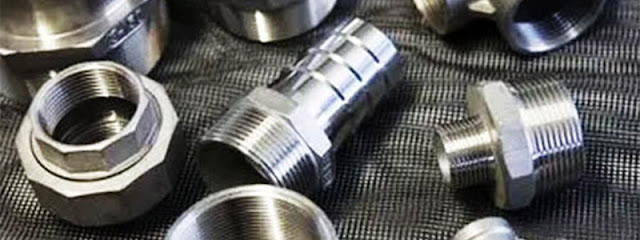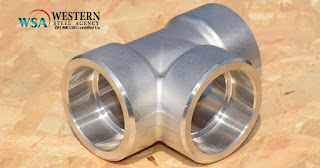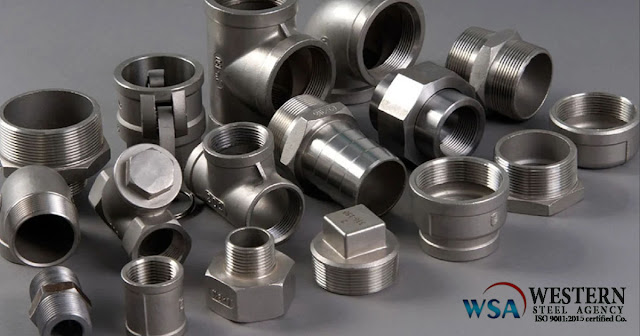Comprehending the Forged Fittings Manufacturing Process
You may notice a variety of metal objects around you, such as pipelines and doorknobs. Ever wonder how these metal fittings are manufactured? Let's explore the intriguing realm of forged fittings production procedures. Western Steel Agency is the best Forged Fittings Manufacturers in India.
What are Forged Fittings?
Metal parts called forged fittings are used to join pipes or other equipment. They are essential in sectors like manufacturing, construction, and oil and gas because they are durable and dependable.
The Manufacturing Process
Step 1: Material Selection
Selecting the proper material is the first step in the process. Alloy, carbon, and stainless steel are common selections. The qualities of the chosen metal should be appropriate for the planned use.
Step 2: Heating
The selected metal is heated in a furnace to a temperature at which it melts not completely but enough to become pliable. The kind of metal being used determines this temperature.
Step 3: Shaping
After being heated, the metal is put onto a die, which is a device that shapes it into the required shape. The metal is compressed by the die, taking on the shape of the die cavity. We refer to this procedure as forging.
Step 4: Finishing
The forged fitting is shaped and then goes through a number of finishing procedures to get the correct dimensions and smooth surface. This could entail polishing, grinding, or machining.
Types of Forged Fittings
Socket Weld Fittings
This kind involves fitting pipes into sockets and welding them shut to create a strong bond. Small pipe diameters are a common application for socket weld fittings.
Threaded Fittings
Threaded fittings can be screwed onto pipes or other fittings because of their threaded ends. This kind provides simple assembly and disassembly.
Advantages of Forged Fittings
Strength and Durability
Fittings made by forgeding are stronger and more resilient than those made by other processes, such as casting. They are therefore appropriate for applications involving high pressure and high temperature.
Resistance to Corrosion
Numerous forged fittings are constructed from materials that resist corrosion, guaranteeing durability and dependability even in challenging conditions.
Precision and Consistency
Fittings produced by forging meet stringent quality standards because it enables exact shaping and dimensional accuracy.
Best Forged Fittings Manufacturers in India - WSAIndia
Western Steel Agency is a leading Forged Fittings Suppliers in India.We produce these ASME SA 790 Stainless Steel Forged Fittings with extra benefits and functionality to satisfy industrial demands.
Beside Forged Fittings Suppliers, We provide forged fittings worldwide, we are
Forged Coupling Fittings Manufacturers
Forged Reducer Fittings Manufacturers
Forged Cross Fittings Manufacturers
Our dynamic products are made with precision and premium raw materials. The purpose of ANSI B16.11 Forged Pipe Fittings is to enable on-site welding of pipe connections and path adjustments. Being a top manufacturer of forged fittings, we produce goods that meet high international standards and are known for their durability and functionality. We are the best Forged Fittings Manufacturers in Mumbai.
Conclusion
In many different industries, forged fittings are essential because they offer robust, long-lasting, and dependable connections for pipes and machinery. The manufacturing process includes heating, shaping, finishing, and carefully choosing the materials. Modern infrastructure and construction projects require forged fittings because of their exceptional strength, resilience to corrosion, and durability.
We can better appreciate the engineering precision and skill required to create these crucial components when we comprehend the forged fittings manufacturing process.




Comments
Post a Comment